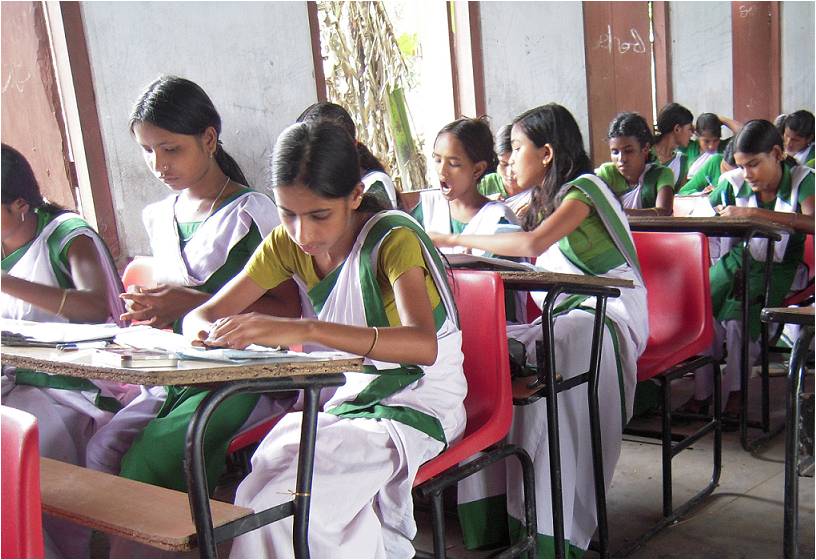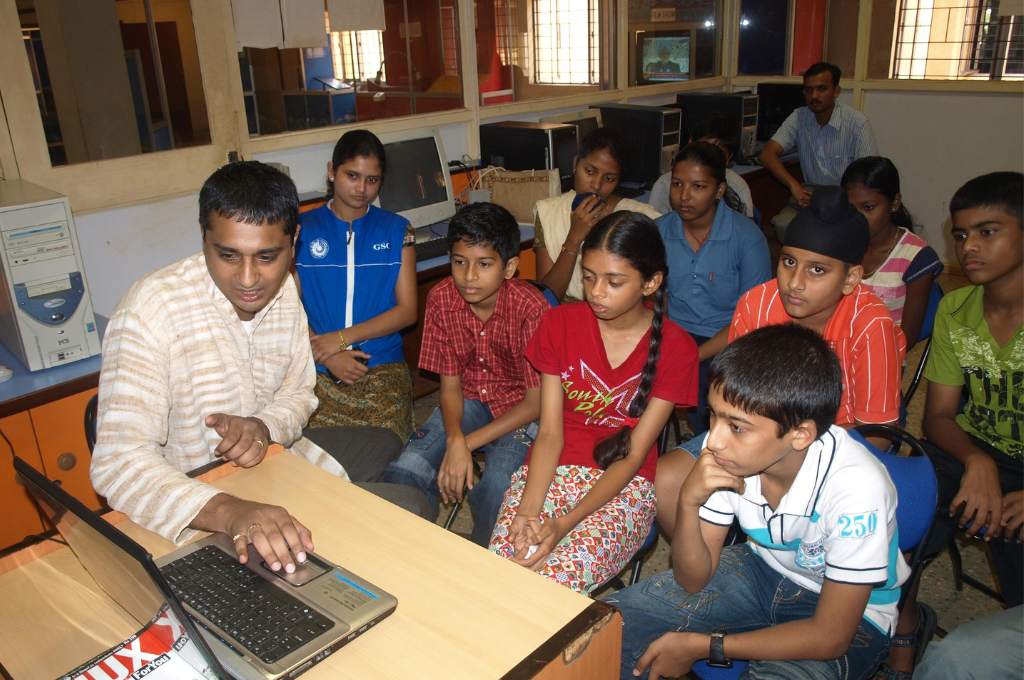Two weeks ago, India’s secondary school students began the painful annual ritual of taking board exams. It’s a ritual few appreciate being part of. Few things in life have been so reviled, for so long, as public examinations. In the 11th century, chancellor to the Chinese emperor (and imperial exam topper) Anshi Wang wrote that the system of imperial examinations caused rote learning, teaching to the test, and severe anxiety. Wang’s complaints will be familiar to any secondary school student in India.
Yet, the biggest problem with the boards is one that gets less attention: They result in an education system that leaves most children behind. Results from the 2018 ASER survey show that only about a quarter of rural class five students are able to perform simple division. Yet, according to the official curriculum, these students should already be able to perform division in a variety of ways and should be mastering the concepts of factors and fractions. This gap between the official curriculum and what students know has severe consequences for learning. Evidence shows that students learn little once they fall behind; and conversely, that they can make rapid progress if they are taught at the right level.
Numerous efforts have been made to address the problem of curricular load
In the 1980s, reformers hoped that new non-formal education centres targeting un-enrolled children and which did not follow the standard curriculum, would allow students to learn at their own pace. Architects of the previous education policy in 1986 mandated the provision of learning materials like science kits, maps, and toys in the hope that teachers would feel less pressure to stick to the textbook. And in 1993, the Yashpal Committee recommended decentralisation of curriculum design in the hope that teachers and officials would factor in local context and needs when deciding what to include in the syllabus.
Reforming the boards might be critical if we want to see far-reaching reforms in classroom pedagogy.
All of these efforts, and many others, failed for the simple reason that parents wanted no part of any new system that didn’t adequately prepare their children for the boards. It follows then, that reforming the boards might be critical if we want to see far-reaching reforms in classroom pedagogy.
Why argue over which of the many flaws in the current boards is the most important?
The reason is that different problems require different reforms. To fix the problem of curriculum load, the boards must move from testing for rote memorisation of a litany of facts, to real understanding of a smaller number of concepts. In addition, board examination scores must meaningfully distinguish not only between good and outstanding students, but also between students who may be lagging behind and those with basic reading and math skills, so that teachers don’t ignore those who can’t catch up.
By contrast, to address the issues of stress and inflexible learning paths, students should be given greater flexibility in when they take their boards, how many times they are allowed to take the boards, and what subjects they could choose from.

The good news is that all of these reforms are included in the National Education Policy (NEP)
The bad news is that there is no way that the central government can implement all of these changes at once. Andrews, Pritchett, and Woolcock use the term ‘premature load bearing’ to refer to the common practice of trying to do too much too soon when it comes to policy. When it comes to high-stakes examinations reforms, premature load bearing is the rule rather than the exception. Countries, like China, which have attempted overly ambitious reforms of high-stakes reforms, often reverse course after the disruption becomes unmanageable.
What can be done?
To avoid this fate, the Government of India should start by making basic changes to the Central Board of Secondary Education (CBSE) to shift from testing memorisation to testing understanding and better distinguishing learning levels across the entire continuum of student levels. Educational Initiative’s report from its work with the Gujarat State Board provides several excellent suggestions for how to achieve this without causing undue disruption.
First, the Ministry of Education (MoE) should require the CBSE to generate questions that test conceptual understanding rather than textbook memorisation. Second, CBSE should gradually increase the share of these new questions in exam papers so that students and teachers have time to adjust to the change. At the same time, the National Council of Educational Research and Training (NCERT) and others should create and share sample questions and other materials to help students become familiar with the new question type.
This is not to say that the reforms intended to increase student convenience, reduce stress, or provide for more individualised learning paths are not important.
In addition to these changes at the board level, the University Grants Commission (UGC) should grant universities flexibility in how they use board scores in admissions so that they are not forced to treat, for example, scores from the Tamil Nadu state board as equivalent to scores from the Haryana state board. If (and only if) successful, the Centre should push other states to adopt similar changes to their own boards. These reforms are tough but doable and would yield huge benefits by allowing teachers to slow down, and focus more on concepts than rote memorisation.
This is not to say that the reforms intended to increase student convenience, reduce stress, or provide for more individualised learning paths are not important. These are as critical but will take much more time and effort. For example, allowing students to take the board exams more than once in a year not only requires boards to create new sets of questions and administer the exam multiple times but also to carefully calibrate the scoring so that scores for one date are equivalent to scores from another date. Providing more flexibility in subject choice is an equally admirable goal but will require significant additional effort on the part of secondary schools.
These changes will also be welcome but we must walk before we can run.
—
Know more
- Read this to know how the New Education Policy (NEP) aims to make board exams easier and flexibility in the choice of subjects.
- Understand how the focus on rote learning in Indian schools is affecting the quality of education and why it is important to replace it.
- Read more on how a lack of focus on learning outcomes and reduced budget allocation is contributing to India’s learning crisis.





